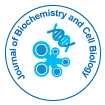Nuestro grupo organiza más de 3000 Series de conferencias Eventos cada año en EE. UU., Europa y América. Asia con el apoyo de 1.000 sociedades científicas más y publica más de 700 Acceso abierto Revistas que contienen más de 50.000 personalidades eminentes, científicos de renombre como miembros del consejo editorial.
Revistas de acceso abierto que ganan más lectores y citas
700 revistas y 15 000 000 de lectores Cada revista obtiene más de 25 000 lectores
Indexado en
- publones
- ICMJE
Enlaces útiles
Revistas de acceso abierto
Comparte esta página
Abstracto
Caracterización bioquímica de la gamma-glutamil transferasa de Bacillus altitudinus: una enzima potencial para la producción de L-teanina
Hemant Sharma
La L-teanina (L-Th), un aminoácido no proteico presente en el té, es un aditivo alimentario y nutracéutico valioso, uno de los más vendidos para el insomnio y generalmente considerado como un ingrediente seguro (GRAS) por la Administración de Alimentos y Medicamentos (FDA). Estudios in vitro, in vivo y clínicos han demostrado su efecto positivo en la regulación de varios trastornos neurológicos. La L-Th mejora el sabor umami en el té y otros alimentos, pero su uso es limitado debido a su producción inadecuada en la planta del té (7-21 mg/g en base al peso seco). Entre los diferentes enfoques de producción y extracción informados, se ha probado la transformación microbiana con ventajas como la mayor eficiencia posible, la menor formación de desechos y el menor impacto ambiental para satisfacer su demanda. Se examinaron más de 300 aislados de la rizosfera del té para la síntesis de L-teanina utilizando glutamina (20 mmol L-1) y etilamina (50 mmol L-1) como donante y aceptor, respectivamente. La cepa con mayor producción de L-teanina se identificó como Bacillus altitudinus
a través de propiedades fisiológicas y bioquímicas con análisis de secuencia de ARNr 16 S y se tomó para estudios de optimización. La producción de la enzima extracelular γ-glutamil transferasa (GGT) se optimizó utilizando una variable a la vez (OVAT) y enfoques estadísticos, es decir, Plakett-Burman y Central Composite Design. La producción máxima de GGT de 442 U ml-1 se obtuvo a 28 ?C, 200 rpm y pH 7 con glucosa (0,1%) y extracto de levadura (0,3%) como fuentes de carbono y nitrógeno. La GGT se purificó hasta homogeneidad a partir de un cultivo de Bacillus altitudinus en tres pasos y se caracterizó. Se determinó una masa molecular de 62 kDa mediante cromatografía de filtración en gel. La GGT purificada tiene un pH y una temperatura óptimos de 8,0 a 37 ?C, estable hasta pH 6-10 y temperatura < 50 ?C. La enzima exhibió la mayor afinidad por los iones Ca2+. La GGT producida a partir de Bacillus altitudinus representa un candidato atractivo para la producción de L-Th a gran escala.
Revistas por tema
- Agricultura y acuicultura
- Alimentación y Nutrición
- Bioinformática y biología de sistemas
- Bioquímica
- Ciencia de los Materiales
- Ciencia general
- Ciencias Ambientales
- Ciencias Clínicas
- Ciencias farmacéuticas
- Ciencias Médicas
- Ciencias Sociales y Políticas
- Ciencias Veterinarias
- Enfermería y atención sanitaria
- Física
- Genética y biología molecular
- Geología y Ciencias de la Tierra
- Ingeniería
- Inmunología y Microbiología
- Química
Revistas clínicas y médicas
- Anestesiología
- Biología Molecular
- Cardiología
- Cirugía
- Cuidado de la salud
- Dermatología
- Diabetes y Endocrinología
- Enfermedades infecciosas
- Enfermería
- Gastroenterología
- Genética
- Inmunología
- Investigación clínica
- Medicamento
- Microbiología
- Neurología
- Odontología
- Oftalmología
- Oncología
- Pediatría
- Toxicología

 English
English  Chinese
Chinese  Russian
Russian  German
German  French
French  Japanese
Japanese  Portuguese
Portuguese  Hindi
Hindi